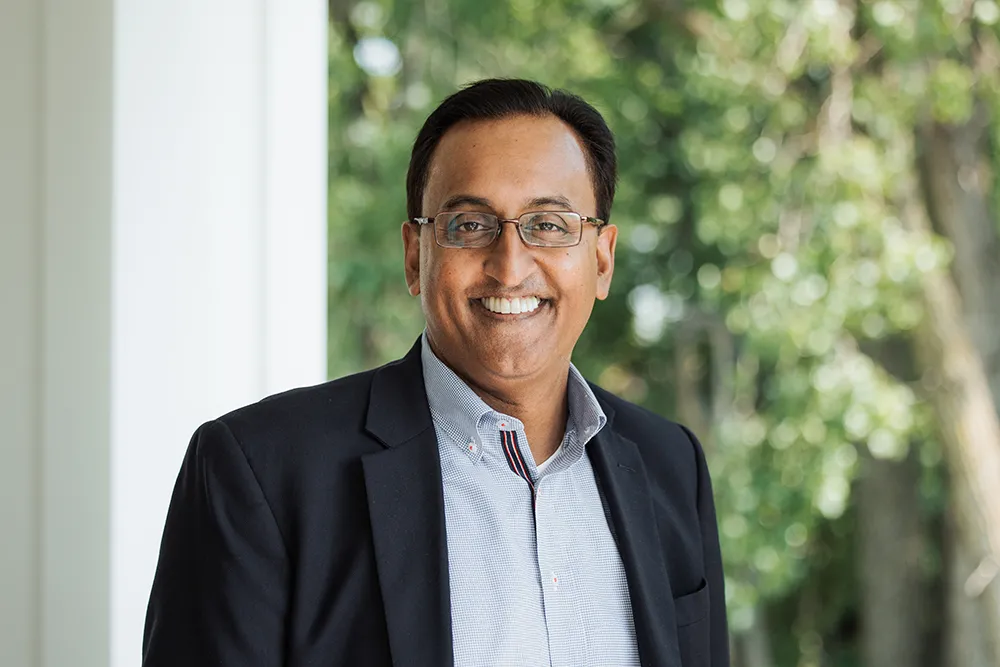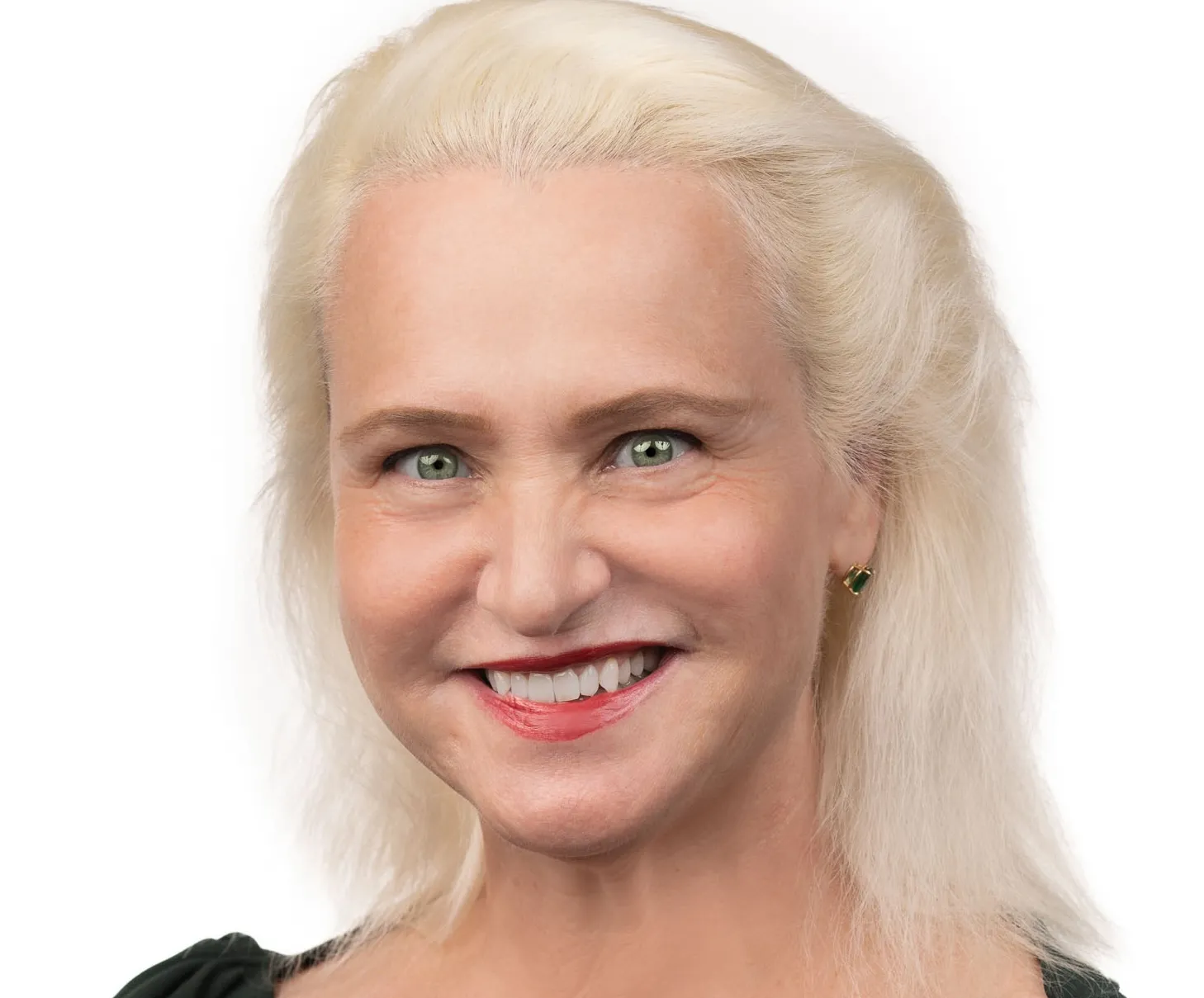Harry Groves, '49: Up for the Challenge
After he had completed his service as an artillery officer in the Second World War, Harry Groves, ’49, came to Chicago to pursue a graduate degree in education. After a year in graduate school, he was challenged by a friend who told him that the Law School was really hard to get into. He applied and was accepted. Thus two consistent themes in Groves’s career were manifested early: his love of teaching and his propensity for accepting and surmounting challenges.
Not long after completing law school he was called back to military service, after the outbreak of the Korean War, to serve in the Judge Advocate General’s Corps at Fort Bragg in North Carolina. When he was discharged he set up a solo law practice in nearby Fayetteville. Add a third career theme—altering racial perceptions—to the two mentioned above. “Let me tell you,” he says, “a lot of jaws dropped in the courthouse when I walked in with white clients from my Fort Bragg contacts. I’m pretty sure I was the first black lawyer with white clients that most folks there had ever seen. For some reason, I was regularly asked where I got my law degree. I can’t tell you the respect that the name ‘The University of Chicago Law School’ evoked.”
In 1956, Groves became dean of the law school at Texas Southern University, a traditionally black institution in Houston whose ABA accreditation was in jeopardy. In addition to straightening out that challenge, Groves began accepting white students. “I wanted to make it a school, not a black school,” he says.
His accomplishments brought him to the attention of Harvard Law School, which offered him one of ten positions it had created for up-and-coming legal educators to conduct postgraduate study. He chose to study the constitution of the recently formed Federation of Malaya, and his analysis was published in a law review. Add a fourth theme: scholarly writing. In his career, he has had six books published, including a casebook on comparative constitutional law, and many influential studies and articles. In two 1951 articles he helped lead the way toward the momentous Brown v. Board of Education decision by arguing that Plessy v. Ferguson was being misinterpreted and misapplied.
Back at Texas Southern after his year at Harvard, he was contacted on behalf of the University of Malaya, which was looking for an American to come teach Malayan constitutional law. He and his wife Evelyn went to Singapore, where the university was located. Within two years he was asked to take on both of the law school’s top leadership roles, as head of the law department and dean of the law faculty. He did so, and within a couple more years he was asked to accept a permanent chair, which he agreed to do. On the day that he and Evelyn were preparing to go back to Houston on leave prior to their permanent move to Singapore, riots broke out. All travel within Singapore was forbidden, and they required a police escort just to get to the airport. Add two more themes: tumult and an abidingly devoted marital relationship.
Unable to return to Singapore, he hung out a shingle in Houston and soon brought on an associate. He agreed to undertake a study of issues related to integration in traditionally black law schools for the ABA’s Council on Legal Education Opportunity. He accepted a visiting professorship at the University of Washington Law School. Evelyn joined him in Seattle, and Groves says he would come home from his last weekly day of teaching to find his bag packed and waiting at the door so he could head back to Houston to supervise his practice or go somewhere else to research his ABA report. One day as he was picking up that bag, he says, “I fainted dead away from exhaustion. It was time to do something a bit more stable.”
That led him to Central State University in Ohio, another traditionally black institution with accreditation problems, where he held office as the school’s president. His travel schedule was lighter, but the tumult was just beginning. It was the late 1960s. His efforts to once again create “a school, not a black school” were met with resistance from campus activists, whose takeover of a white teacher’s classroom led to the National Guard being called in by local officials and caused Groves to shut down the school a week early and send all the students home to avoid the risk of injurious confrontations.
One day a Central State teacher was murdered in her home. The police determined that murder was the only motive: no valuables were taken and nothing else was amiss. State investigators were called in, and when they considered that the murdered teacher’s last name was Hargrave, they pieced together a convincing theory of what had happened—a contract killer from Cleveland, hired to kill Harry Groves, had killed Ms. Hargrave in error. “That was my murder,” Groves recalls. “It just wasn’t me.”
Drama continued to erupt on the campus, including more threatened violence in the days after the assassination of Martin Luther King, Jr., and Groves continued to handle it deftly. Evelyn’s health was poor, though, and Groves resigned so he could take her to Boston where the most advanced treatment for her condition was being administered. As her health stabilized, they went to live on a farm they had purchased in Ohio and he opened a practice in Dayton.
Not long afterward he was offered a professorship at the University of Cincinnati. Accepting that position, he became one of the first five black full-time professors to serve on the faculty of a predominantly white law school in the United States. (The first was University of Chicago professor Robert Ming, Jr., who was one of Groves’s professors at the Law School, and who recommended Groves for a short-term position at the American Council on Race Relations that Groves held right after he graduated from the Law School.)
Another law school deanship followed, at North Carolina Central University (which also had accreditation difficulties), and then in 1981 he was named Henry Brandis Professor of Law at the University of North Carolina. “I was glad to be back to teaching, the finest of all possible jobs,” he says today. As for the other themes mentioned here, his marriage is in its fifty-ninth year; his writing and advocacy led to the passage of pathbreaking legal protections for residents of continuing care communities; and four years’ service as chairman of the ethics oversight committee of the United States Olympic Committee gratified his enthusiasm for new challenges. As for tumult, there’s less of that, “except,” as he says, “for the day-to-day health challenges of a couple who are sometimes forced to admit that they’re just not as young as they used to be.”
He has given six gifts of charitable annuities to the Law School, and he’s not finished doing so. “I expect to continue giving to Chicago,” he says. “A lot of very good things have come to me as a result of my time there.”


